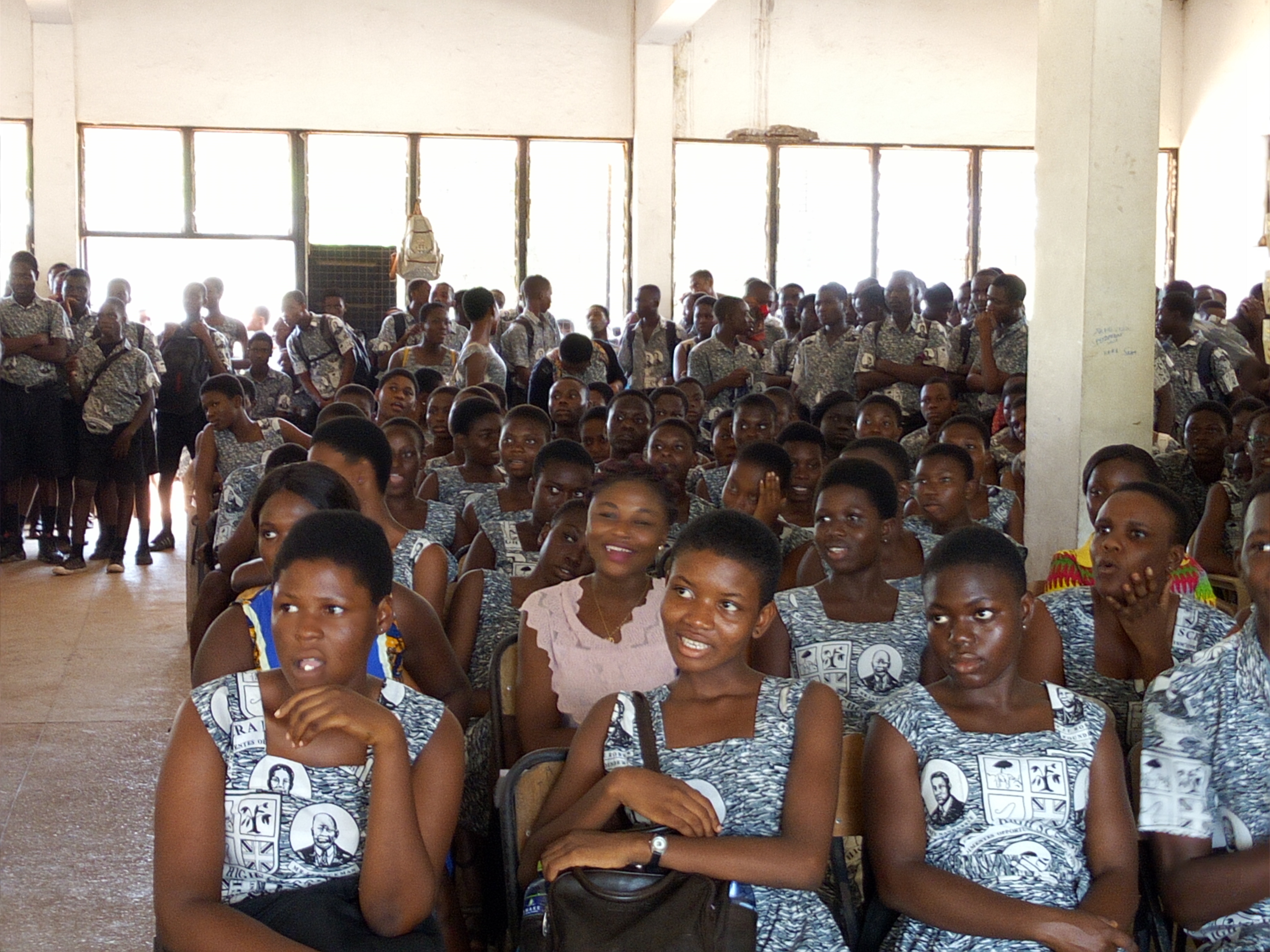
Ghana, like many other countries, is facing a growing substance abuse problem, though there may be some disparities in the scope of the problem. Sadly, this has stretched to include the youth. It is reported that about 50,000 people in Ghana abuse substances and 70% of these result in mental illness.
Per the Narcotics Control Board Statistics, youth in Junior/Senior High Schools and tertiary institutions in Ghana make up the majority of the drug user community. Research from Psychiatric hospitals in Ghana has shown that about 70% of inmates in those hospitals are youth from Junior, Senior high schools and tertiary institutions. It is evidently clear, that the most vibrant and active part of the society, are the ones gradually being eaten away by this menace.
The Founder and President of the Rebekah Awuah Foundation (RAF Ghana), Madam Rebekah Awuah disclosed these in Accra on Friday at the Foundation’s first youth empowerment, development and sensitization forum for students of Accra High School, one of the leading Second Cycle institutions in Ghana.
Dubbed: “Alcohol and Drug Abuse– A National ticking Bomb”, Madam Awuah indicated “four out of five students drink alcohol, making it the most popular and dangerous drug on campuses by far, as tobacco, illicit drug and alcohol use are among the most common substances held responsible for considerable mortality and morbidity rates especially among adolescents and young adults”.
It is in light of this worrying trend, that RAF Ghana sought to build the capacity and increase the level of youth awareness on how to engage with their institutions to develop effective campus-based strategies to deal with the menace.

Madam Awuah noted “it is high time we disabuse the minds of college administrators, educators, trustees, alumni, parents and young people, that Alcohol and Drug Abuse is some harmless rite of passage, and instead, see it for what it truly is: a dangerous game that threatens our nation and wasting the country’s best and brightest”.
She added, “We at RAF envision a world in which all people can achieve their potential but it cannot be achieved by any organisation alone. RAF must work with a global network of partners to advance a shared vision of progress by investing in people and societies.”
Madam Awuah, therefore called for extensive partnership and new resources to enable the Rebekah Awuah Foundation-(RAF Ghana), embark on an intensified outreach program for students and teachers in various educational institutions on the negative effects of substance abuse and continue to adapt in order to support the people the NGO are dedicated to serve and live up to the principles they embrace.
Mr. Jackson Seyram Avotri, a professionally trained nurse and a Mental Health Advocate mentioned that, the high rates of drug abuse among the youth can be attributed to a number of factors, including: stress, course load, curiosity, peer pressure among others.
“Why should this be the case when the use of substances during adolescence obstructs the development of the brain and thus increases the risk of serious health and mental health conditions in later life, exposes one to risky sexual behaviour and the spread of various diseases?” he wondered.
He advised students not to be swayed by peers to try alcohol. According to him, the body did not need additional alcohol, as some meals consumed, are converted to the alcohol required by the human system, insisting an extra amount increases the brain’s tolerance for it, leading to addiction.
A 65 –year-old, George Odonkor,a former drug addict for 26years, now an advocate, shared his life story with students and advised them to shun the practice before it lands their “dreams into drains”.
At the end of the program, participants committed to series of actions including raising awareness on the use of substances with ten students opting to be volunteers to assist the Foundation facilitate activities in schools, ten others requested to be connected to mentors, out of which three have requested the Foundation to support them through school.
Source: Ghana/Starrfmonline.com/103.5FM

